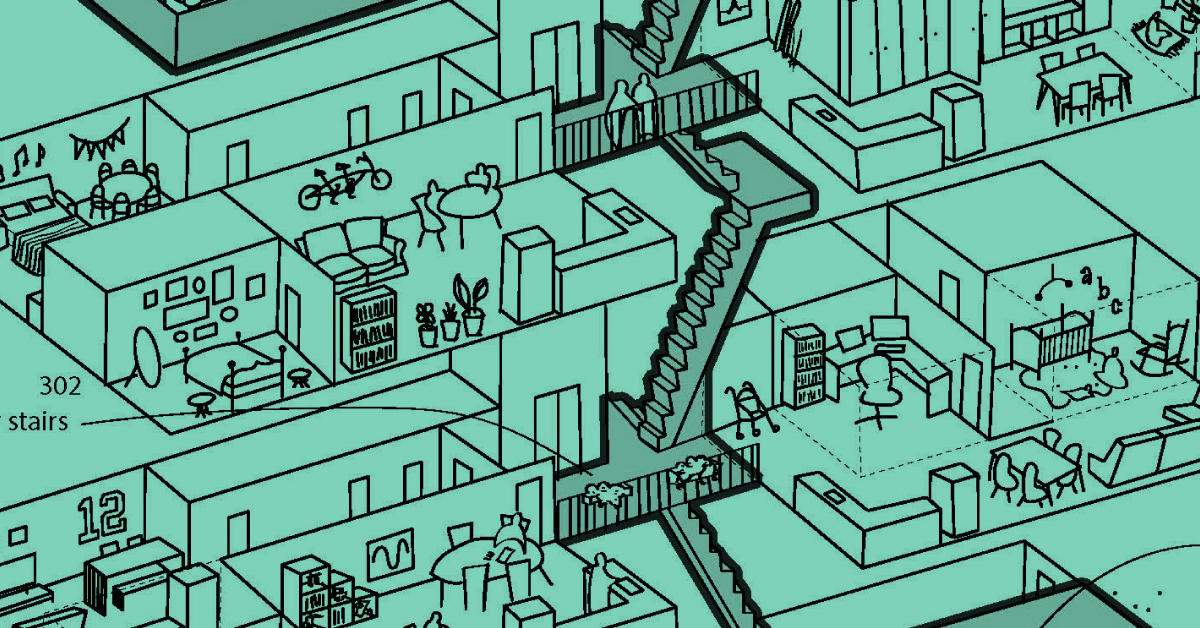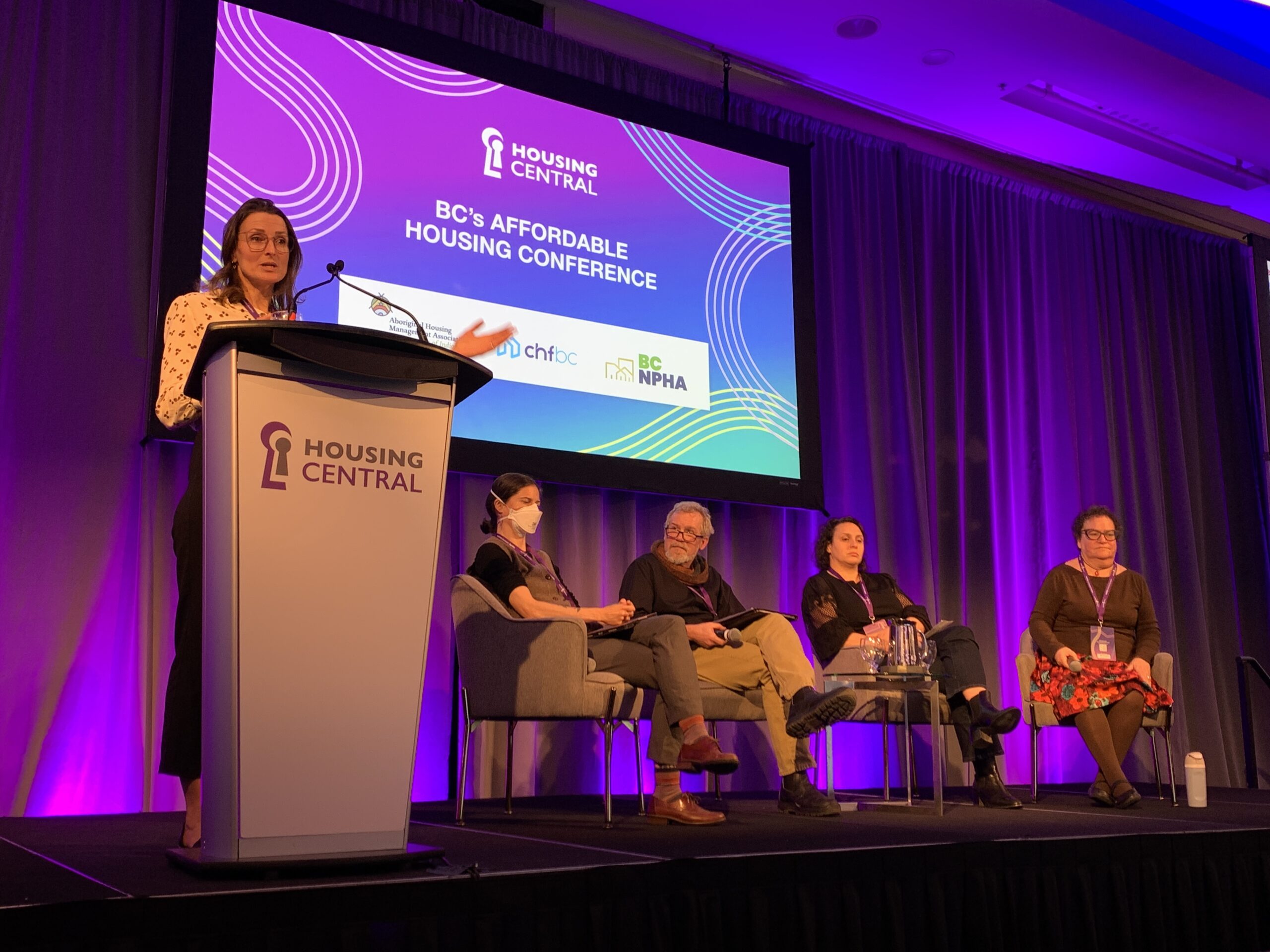How does building design impact the way we live and connect within our communities? This question was the focus of a recent Balanced Supply of Housing event in Vancouver, British Columbia, where four experts discussed a significant policy shift permitting single-stair (single egress) apartment buildings in the National building code. In August of 2024, BC adopted code changes that allow for single egress buildings, becoming the first province in Canada to adopt such legislation. These changes open new avenues to rethink housing, foster innovation in urban design, and create spaces that accommodate families on smaller plots of land.
The event, Unlocking Housing Potential, brought together thought leaders to explore the implications of this legislation on community planning, design, safety, and livability. They discussed how re-envisioning traditional building codes can support vibrant communities while prioritizing social connection, safety, and well-being.

Event Highlights
Conrad Speckert, an Intern Architect at LGA Architectural Partners in Toronto, has worked alongside BSH researcher Nik Luca, on reforming the national building code to allow for single-egress multi-unit housing. Additionally, Conrad’s work with the CMHC Housing Supply Challenge, which explores alternatives to traditional two-staircase requirements, underscores the possibilities of flexible building codes for “missing middle” housing solutions. His projects illustrated how design codes can support gentle density, making cities more inclusive and adaptable. More of his work can be found at https://secondegress.ca/.
After Conrad’s keynote presentation, Andrew Harmsworth, Founding Principal at GHL Consultants, Ltd. and a fire safety engineer, expanded on Conrad’s arguments. He emphasized that, with modern fire prevention techniques such as fire blocking, sprinklers, and advanced alarm systems, single-egress buildings up to six stories do meet today’s safety standards. He concluded by remarking that a 6-story single-egress building with sprinklers is in fact safer than a two-egress 3-story building or a 600m2 3-story house.
Inge Roecker, Associate Professor at UBC’s School of Architecture and a leading voice in inclusive and sustainable design, furthered the conversation on how single-egress buildings can be designed to enhance safety and be healthier for residents. Through her work with the Housing and Wellbeing Research Group, as well as her role in Design for Inclusion (D4i) and principal at Air Studio (Vancouver/Stuttgart), Inge promotes housing solutions that prioritize equity, community, and collaboration. Inge highlighted the benefits of designing single-egress multiplexes, explaining how they can fill the gap between single-family homes and high-rises. She noted that these buildings can easily include inner courtyards for community spaces and feature cross-ventilation to improve air quality and natural temperature control. Concluding her remarks, Inge advocated for “aging in plex”—a concept that allows older adults to age in place within single-floor, community-oriented multiplex residences.
Lastly, Nathan Lauster, Associate Professor of Sociology at UBC and author of The Death and Life of the Single Family House, sheds light on the dynamics of urban housing, zoning, and community life. Drawing from his work with the Metro Vancouver Zoning Project, he highlighted how zoning shapes neighbourhoods and the potential impact of BC’s new building code changes.
Reflections on a Meaningful Discussion
This event inspired a rich exploration of how updating building codes can unlock housing potential, bring communities closer together, and contribute to a sustainable urban future. A Q&A session following the panel allowed attendees to engage directly with the speakers, deepening the conversation on these timely and critical topics.
For more on this topic, see BSH’s research page on Concerted Action on the Missing Middle: https://bsh.ubc.ca/research/concerted-action-on-the-missing-middle/ and follow us on social media to join future events on housing research across Canada: https://x.com/BSHNode
Special thanks to UBC Connects and UBC Robson Square for making this event possible.
Event date: October 25, 2024
The Balanced Supply of Housing is a SSHRC-CMHC funded community-based research project at UBC that focuses on land use and housing financialization across Vancouver, Toronto and Montreal.



